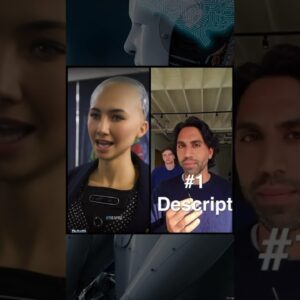As the world continues to progress towards a more automated future, advances in artificial intelligence have brought unprecedented changes in industry and employment. While technological advancements have created new job opportunities, certain career paths are at risk of being replaced by artificial intelligence. In this blog post, we will explore six such career paths that are likely to face a significant shift in the near future, along with the potential implications for individuals and society as a whole.
Introduction
Artificial intelligence is revolutionizing the way the world operates. While it has its advantages in making certain tasks easier and efficient, it is also jeopardizing the future of some careers and industries. Today, we will talk about the six careers which are at risk of being replaced by artificial intelligence in the near future.
1. Customer Service
With advancements in natural language processing and machine learning, chatbots have become increasingly popular in customer service. They offer 24/7 support, cost-effective solutions, and quick response time. In the future, chatbots are likely to replace humans in managing customer queries, complaints, and feedback.
2. Data Entry
Data entry is a repetitive task that requires minimal cognitive abilities. With machine learning and optical character recognition technology, machines can quickly and accurately scan, recognize and enter data. In the near future, machines are likely to replace human data entry clerks, making data management faster and more efficient.
3. Accounting
Artificial intelligence has made bookkeeping faster and more accurate. With software such as QuickBooks and Xero, financial transactions can be automatically recorded, categorized, and reconciled. Artificial intelligence is likely to replace traditional bookkeeping practices, enabling businesses to manage their finances more efficiently while reducing costs.
4. Telemarketing
Telemarketing requires patience, perseverance, and convincing communication skills. However, with advancements in natural language processing, machines can now initiate and handle conversations with customers, without the need for human intervention. In the near future, telemarketers are likely to be replaced by conversational AI, improving the quality and precision of communication.
5. Writing
Artificial intelligence has come a long way in generating coherent and grammatically correct sentences. With tools like Grammarly and GPT-3, machines can write articles, reports, and even books. While they may lack creativity, machines can generate content that is accurate, concise, and easy to read, while saving time and reducing costs.
6. Driving
Self-driving cars were once a thing of fiction, but they are now becoming a reality. With advancements in computer vision and machine learning, self-driving cars are becoming more sophisticated and reliable. It is predicted that in the near future, self-driving cars will replace human drivers, reducing the number of road accidents and increasing efficiency in the transportation sector.
Conclusion
Advancements in artificial intelligence bring with it the potential of improving efficiency, reducing costs, and increasing accuracy in various industries. However, it also poses a threat to the future of certain careers. While the replacement of human workers by machines may seem daunting, it is important to remember that it also presents new opportunities for individuals to upskill and reskill in emerging fields.
Frequently Asked Questions
- What are the advantages of using AI in industries?
Artificial intelligence can increase efficiency, reduce costs, and improve accuracy in various industries. - Will all customer service roles be replaced by chatbots?
While chatbots can handle most customer queries, some complex and sensitive issues may still require the intervention of a human agent. - Can artificial intelligence be creative?
Artificial intelligence can produce content that is accurate and easy to read, but it lacks the creativity and emotional intelligence that comes with human-written content. - How can individuals prepare for the future of work?
Individuals can upskill and reskill in emerging fields such as data science, machine learning, and AI. - Will self-driving cars completely replace human-driven cars?
It is predicted that in the near future self-driving cars will become the norm, but there may still be some human-driven cars on the road, especially in remote areas where AI infrastructure is limited.
